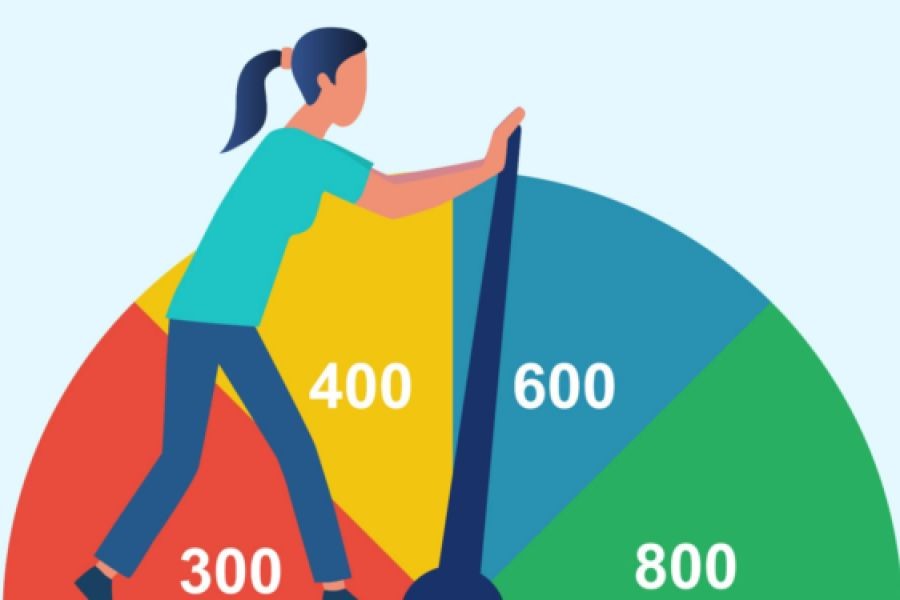Imagine the excitement of owning your dream home in New Zealand, only to have it dashed by a low credit score. In a landscape where homeownership is both a cherished goal and a financial milestone, understanding how to enhance your credit score is crucial. With the Reserve Bank of New Zealand's 2023 data indicating that the average Kiwi credit score is 670, many New Zealanders find themselves on the borderline between good and average credit. But what steps can you take to climb the credit ladder and secure that coveted mortgage?
Understanding the Importance of Credit Scores in New Zealand
In New Zealand, your credit score is a numerical representation of your creditworthiness, which lenders use to evaluate your ability to repay a loan. According to Consumer NZ, a score above 700 is considered good, while anything below 600 can hinder your ability to secure a mortgage.
The Impact of Credit Scores on Home Buying
A strong credit score can significantly affect the interest rate offered on your mortgage. For example, a borrower with a score of 750 could secure an interest rate of 3% compared to a 4% rate for someone with a score of 650. This difference could translate into thousands of dollars over the life of a loan.
Steps to Improve Your Credit Score
Improving your credit score is not an overnight task, but with strategic steps, you can make a significant impact.
- Review Your Credit Report: Start by obtaining a free copy of your credit report from agencies like Centrix or Equifax. Look for inaccuracies or outdated information that could be dragging your score down.
- Pay Bills on Time: Consistent, on-time payments can improve your score. Consider setting up automatic payments or reminders to ensure you never miss a due date.
- Reduce Debt: High levels of debt relative to your credit limit can harm your score. Aim to keep your credit utilization below 30%.
- Avoid New Credit Applications: Each application can slightly lower your score, so be strategic about when and why you apply for new credit.
Real-World Case Studies from New Zealand
Case Study 1: Jane's Journey to Homeownership
Jane, a 30-year-old teacher from Wellington, found herself with a credit score of 620. Her goal was to buy a house within two years. By reviewing her credit report, she discovered several inaccuracies, including an old debt that had been paid. After disputing the errors, her score improved by 40 points. Additionally, she paid off her credit card debt, dropping her utilization rate to 25%. Within 18 months, Jane's score rose to 710, allowing her to secure a mortgage with favorable terms.
Case Study 2: The Impact of Timely Payments
Ravi, an IT consultant in Auckland, had a decent score of 680 but wanted to improve it to get a better mortgage rate. By setting up automatic payments for all his bills, he ensured a spotless payment history over 12 months. This strategy alone boosted his score to 730, saving him over $20,000 in interest payments on his new home loan.
Common Myths & Mistakes
Myth vs. Reality:
- Myth: Closing old credit card accounts boosts your score.
- Reality: Closing accounts can reduce your available credit, increasing your utilization ratio and potentially lowering your score.
- Myth: Checking your own credit score will hurt it.
- Reality: Personal inquiries are considered soft checks and do not affect your score.
- Myth: A higher income automatically equates to a better credit score.
- Reality: Income is not a direct factor in your credit score; it's your credit behavior that counts.
Final Takeaways
- ✅ Fact: Over 30% of New Zealanders have errors on their credit reports.
- 🔥 Strategy: Regularly review your credit report and dispute inaccuracies.
- ❌ Mistake to Avoid: Do not max out your credit cards; keep utilization below 30%.
- 💡 Pro Tip: Set up automatic bill payments to maintain a perfect payment history.
Conclusion
Improving your credit score is a critical step towards homeownership in New Zealand. By understanding the factors that impact your score, taking proactive steps to address them, and avoiding common pitfalls, you can enhance your financial profile and secure a home loan with favorable terms.
Ready to take control of your credit score? Start by requesting your credit report today and take the first step towards your dream home. What credit score improvement strategy will you implement first? Share your thoughts!
People Also Ask
- How does a credit score impact buying a home in New Zealand? A higher credit score can lead to better interest rates on home loans, making homeownership more affordable over the long term.
- What are common misconceptions about credit scores in New Zealand? Many believe income influences credit scores, but it's your credit behavior that matters.
- What strategies improve credit scores effectively? Regularly checking your credit report for errors and paying bills on time are key strategies.
Related Search Queries
- How to get a mortgage in New Zealand
- Best ways to improve credit score NZ
- Understanding credit scores in New Zealand
- How to dispute errors on a credit report NZ
- Impact of credit score on home loans NZ































